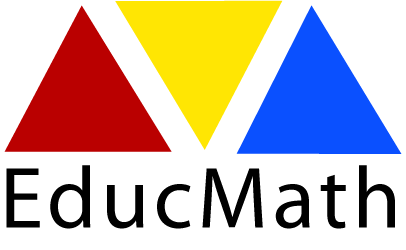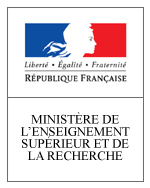Scenarios
Design, Analyses, and Uses of Learning Scenarios supported by ICT
Team
Pierre Bénech, Valérie Emin (in charge) , Jean-Philippe Pernin (Associate Member),
Presentation
The world of education is nowadays undergoing a steady growth of projects which aims at improving and supporting already existing teaching practice by providing digital materials and computerized commnunication tools. The learning environments looked for depend on more and more diverse rules intertwining individual or collaborative learning, class work, homework or field work, synchronous or asynchronous work, etc. So much complexity requires those new learning devices to be formalized through the use of scenarios.
A sum of research work (see bibliography) and field initiatives offer models, methods and tools so as to conceive, set up, put to use and analyse the learning situations while giving a new light to the traditional parts played by the actors (students, teachers, tutors, parents, etc.). We are presently concerned with offering formal schemes allowing to describe the organization and the unfolding of those situations thanks to a learning scenario specifying the parts played by the actors, the tasks with which they are entrusted, the resources they use or produce, and the interactions which may result henceforth.
The work of the Scenarios project, conducted with the collaboration of practitioners, aims at designing, setting up, adjusting, observing, analysing and sharing learning scenarios using ICT.
Partnership
Started within the e-Praxis team in 2005, the Scenarios project falls among the structuring projects of the “EducTice team.” It ramifies among a partnership dynamics with a research lab (LIG- University of Grenoble), some university institutes or services (the Teacher Training Institute of Lyon 1, PRACTICE University of Lyon 1) together with offices of the Education Department (“Office of the SDTICE uses” ) or of the Board of Education (CTICE, network of the academic representatives, IANTE eg). The various actions resulting from those partnerships are meant to become part of the Apprentice Program (PPF).
Actions
The research on Scenarios falls under several actions for the EducTice team :
- Scen@TIC : this action focuses on designing and experimenting learning scenarios using digital technologies inside classrooms and outside (mobile learning, ubiquitous learning). Design can concern scenarios and patterns and is realised in collaboration with teachers at french secondary school in various subject matters and more specifically in Science and Technology.
- ScenEdit is a graphical authoring environment dedicated to facilitate teachers’ task in designing and implementing learning scenarios using Information and Communication Technology. It is more particularly based on the theories of reusable components, of scenario patterns and of archetypal scenarios.
- ACTORS (2005-2007), a project refered to by the ACI (action concertée incitative) as Fields, techniques, theories: cross-curricular work in human and social sciences, which specifically tackles the description of the scenarios in Orchestrated and Collective Situations of Learning within higher education.
- SPE (Mobile Learning Scenario) (2006-2009), this research focuses on the pedagogical uses of ubiquitous technologies. Here the aim is to describe learning scenarios which take pedagogy outside the classroom shaking the long-time received notions of teaching-learning space and time.
Publications in English
Emin V., Pernin J.-P. and Aguirre J.-L. ScenEdit: An Intention-Oriented Authoring Environnment to Design Learning Scenarios. In M. Wolpers, P. Kirschner, M. Scheffel, S. Lindstaedt, and V. Dimitrova, editors, Sustaining TEL: From Innovation to Learning and Practice, volume 6383 of Lecture Notes in Computer Science, pages p. 626--631. Springer Berlin / Heidelberg, 2010. 10.1007/978-3-642-16020-2‑65.
Emin V., Pernin J.-P., Guéraud V. (2009), Model and tool to clarify intentions and strategies in learning scenarios design, EC-TEL 2009 Proceedings, October 2009, pages 15
Emin V., Pernin J.P. (2009), ScenEdit: a goal-oriented tool to design learning scenarios. In VIDLATEL Workshop, In VIDLATEL Workshop, in conjunction with ICALT Conference, Riga, Latvia, July 2009, (2 pages), 2009.
Schneider D. K., Benetos K., Pernin J.-P., Emin V. Subjective representations of educational design systems. In VIDLATEL Workshop, in conjunction with ICALT Conference, Riga, Latvia, July 2009, pages p. 738--740. ICALT, IEEE, 2009.
Emin V., Pernin J.-P., Guéraud V.(2008), Goal-oriented authoring approach and design of learning systems, 2nd International Workshop on Requirements, Intentions and Goals in Conceptual Modeling (RIGiM), In conjunction with the 27th International Conference on Conceptual Modeling (ER 2008)
Emin V. (2008): ScenEdit: an authoring environment for designing learning scenarios, ICALT’08, IEEE International Conference on Advanced Learning Technologies, Santander
Pernin J.-P., Emin V., Guéraud V.(2008), ISiS: An Intention-Oriented Model to Help Teachers in Learning Scenarios Design, EC-TEL 2008 Proceedings, in "Times of Convergence. Technologies Across Learning Contexts ", Lecture Notes in Computer Science, Springer, Volume 5192/2008, p.338-343, 2008
References









